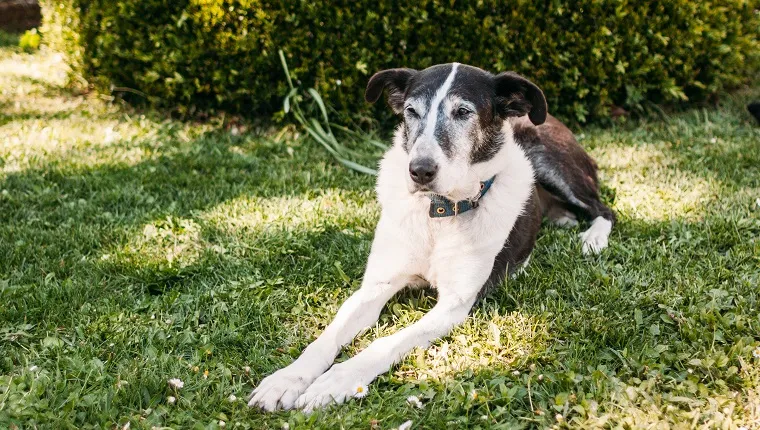Dementia in dogs, also known as canine cognitive dysfunction syndrome (CCD or CDS), is a medical condition that can set in as a dog’s brain ages. It can bring about symptoms such as decreased awareness, slower responsiveness, and memory issues.
The condition gradually gets worse over time, with studies showing that as many as one half of dogs over the age of eleven show at least one sign of CCD.
If you see signs that your dog might be developing cognitive issues, then you must consult your veterinarian for a proper diagnosis and advice. Here’s what you should know about the symptoms, causes, and treatments of dementia in dogs.
Symptoms of dementia in dogs
Dementia in dogs can cause a large number of symptoms. Some of the most common general symptoms include:
- Seeming confused and disoriented
- Memory loss (especially forgetting previously trained behaviors)
- Anxiety
- Loss of appetite
- Erratic sleeping routine
- Staring blankly (especially at walls)
- Lack of willingness to play
- Incontinence
Causes of dementia in dogs

The precise cause of dementia in dogs is not definitively known, but the condition occurs as a dog’s brain ages and brain cells begin to die. What’s more is that dementia symptoms can come on quickly in canines.
In some cases, suffering from a stroke can also bring on a case of CCD in dogs.
Veterinary treatments
If you suspect that your dog is developing dementia, then your veterinarian will want to conduct a full physical examination of your dog. They’ll take blood and urine tests, possibly along with X-rays and ultrasounds. Furthermore, an early stage of diagnosis is ruling out other conditions that might be causing similar symptoms.
If the vet confirms their diagnosis, lifestyle measures and changes are essential. Making sure your dog stays both physically and mentally active is key. Your vet can suggest training routines that may help to stimulate your dog’s brain.
Additionally, switching to a healthier diet and adding certain supplements can sometimes help dogs suffering from canine cognitive dysfunction. Your vet can advise you on any dietary changes, which might also include supplements such as selenium, antioxidants, and vitamins C and E.
In some cases, vets might suggest certain medications, such as Selegiline (Anipryl®) or Diazepam (Valium). As always, if your vet prescribes any medicine for your dog, then it is vital you stick to the precise dosage and frequency instructions and complete the full course of medication.
There is no cure for CCD in dogs, but keeping up regular visits to your vet can help you accurately monitor the quality of your canine’s life.









